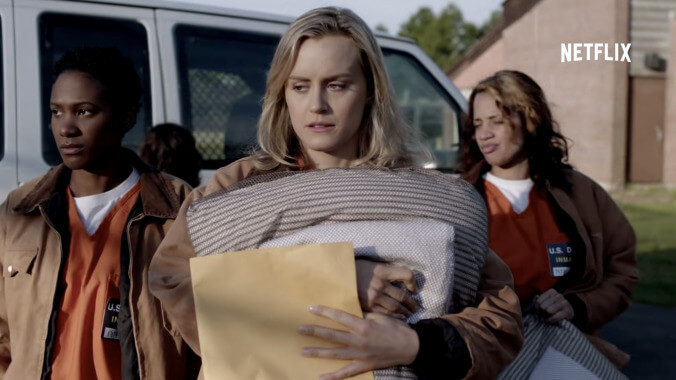Read This: The Orange Is The New Black cast was on the cutting edge of streaming disparity
The award winning Orange Is The New Black ensemble struggled with salaries and residuals despite putting Netflix on the map

Orange Is The New Black Screenshot: Netflix/YouTube
With the SAG-AFTRA strike all but assured, the issues within the entertainment industry are all the more glaring. A lot of those issues have to do with how the business changed in the streaming era; salaries are low, residuals are evaporating, and there’s a complete lack of transparency about viewership data. Perhaps no one knows this better than the writers and actors on Orange Is The New Black, one of the first mega-breakout hits of the streaming age. Several members of the supporting cast spoke with The New Yorker about their time on the show, and how the runaway success did not translate to financial security for most of its stars.












![HBO teases new Euphoria, Larry David, and much more in 2026 sizzle reel [Updated]](https://img.pastemagazine.com/wp-content/avuploads/2025/12/12100344/MixCollage-12-Dec-2025-09-56-AM-9137.jpg)



























